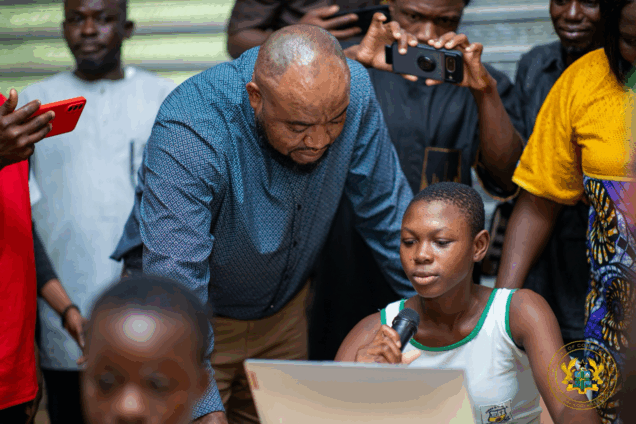
Ghana’s Deputy Minister for Communication, Digital Technology, and Innovation, Mohammed Adams Sukparu, has called for Information and Communications Technology (ICT) to be made a mandatory core subject in schools, placing it on the same level as mathematics and science.
The deputy minister made the appeal during an inspection of the National Girls in ICT Project in the Upper West Region, where he visited McCoy College of Education in the Nadowli-Kaleo District and Wa Senior High School.
During the visit, Sukparu engaged with students and teachers, highlighting the government’s determination to promote technology inclusion.
Sukparu described the initiative as a reflection of President John Dramani Mahama’s personal commitment to digital transformation. He said the programme, which offers scholarships, job placement support, and hands-on digital training, aims to help young women compete in sectors where gender disparities remain significant.
The proposal to elevate ICT to a core subject would mark a major curriculum shift. Currently, ICT is part of Ghana’s education system but does not have the same mandatory status as mathematics, English, or science. Implementing such a change would require approval from the Ghana Education Service, substantial investment in teacher training, curriculum development, and school infrastructure.
Many schools, especially in rural areas, face challenges such as inconsistent electricity, inadequate computer labs, and a shortage of qualified teachers. Without addressing these gaps, making ICT compulsory could deepen educational inequalities.
Sukparu linked the Girls in ICT programme to the government’s forthcoming One Million Coders Initiative, which aims to train one million Ghanaians in software development and related skills. He suggested the project would serve as a pathway to advanced digital training and entrepreneurship opportunities.
Mary Haruna, District Chief Executive for Nadowli-Kaleo, joined the inspection, underscoring the importance of local government involvement in implementing national technology education policies.
Gender disparities in ICT education and employment remain a pressing challenge in Ghana. Women are underrepresented in ICT degree programmes, technology companies, and technical roles. The Girls in ICT initiative is designed as part of a broader strategy to address these inequalities through education reform, mentorship, industry partnerships, and workplace culture change.
Sukparu assured stakeholders that the Ministry would continue monitoring the programme’s progress and announced that Communications Minister Samuel Nartey George would make an official commissioning visit.
While the deputy minister’s call reflects the growing importance of digital literacy in modern economies, he acknowledged that policy commitments must translate into real-world outcomes such as quality instruction, adequate resources, and clear career pathways for students.
Ultimately, the success of the Girls in ICT programme will be measured not just by curriculum changes but by results — including increased female participation in ICT education, more women entering technology careers, and a narrowing gender gap in digital skills across Ghana.



